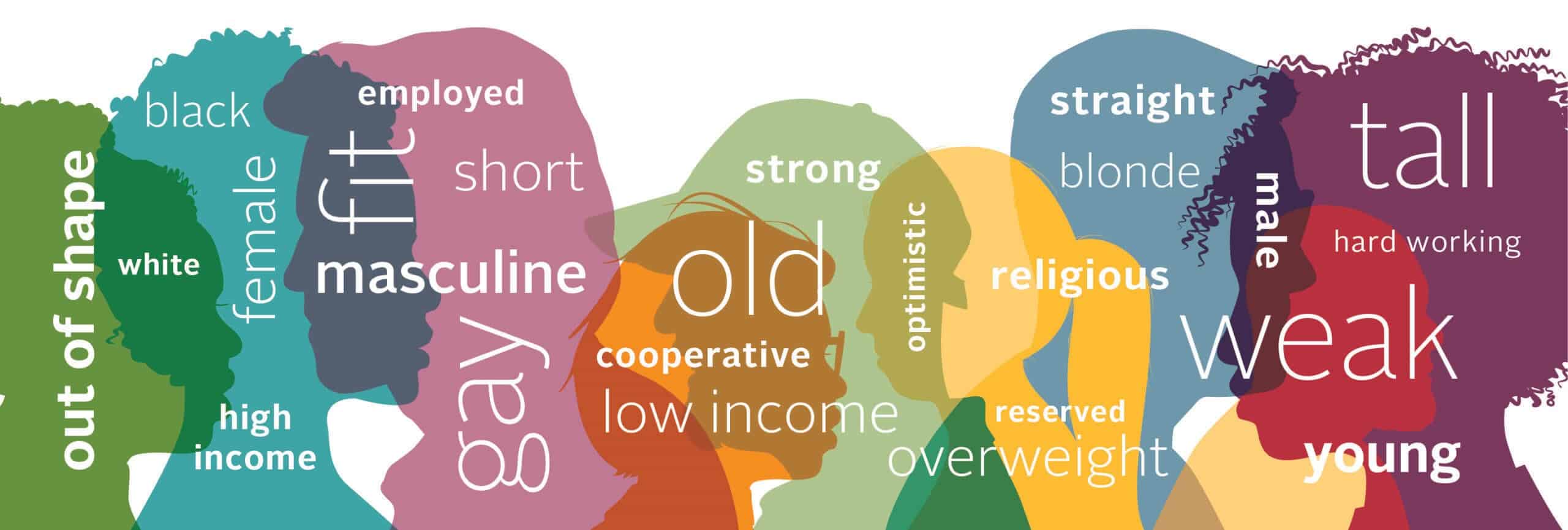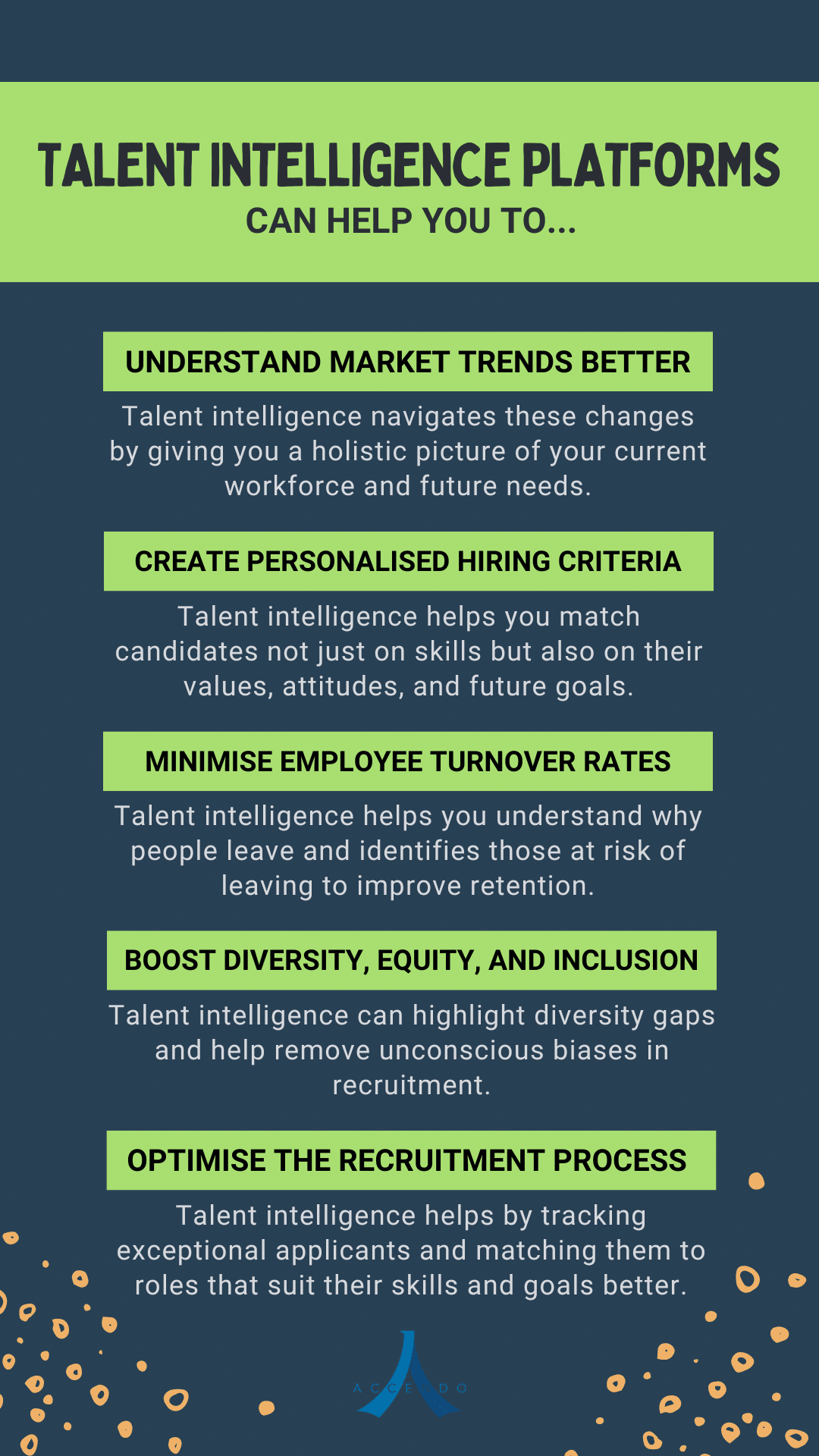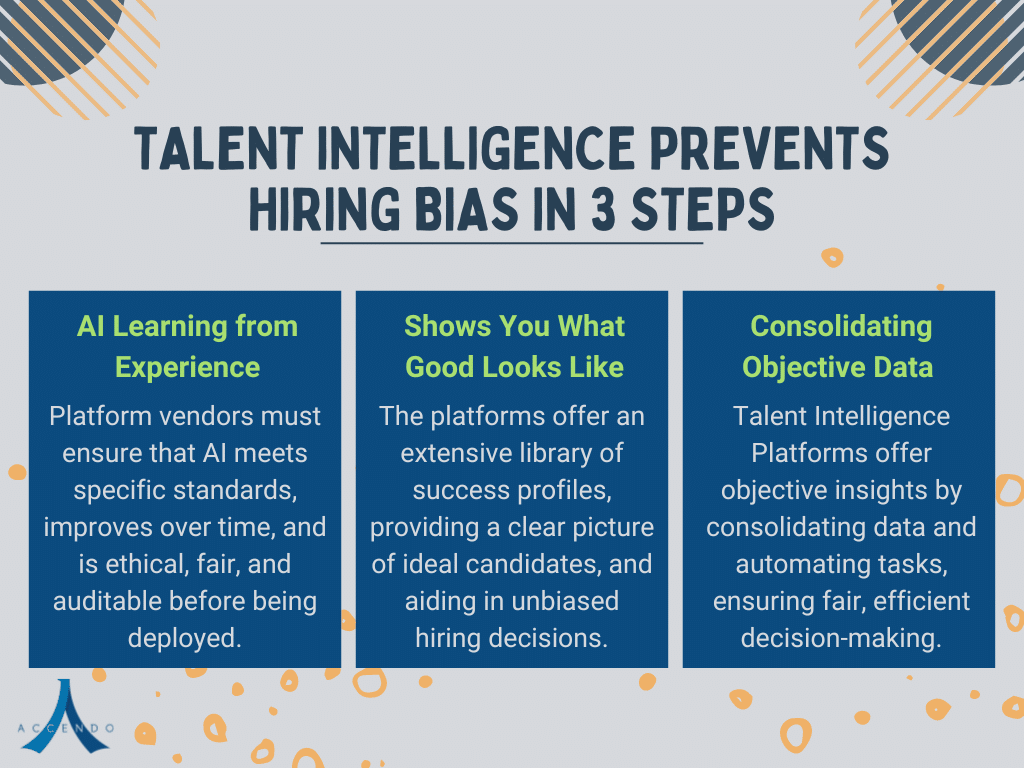Talent in your company is your biggest asset. You might have a clear vision, plenty of resources, and a solid plan, but without the right people, it’s all just theory. Plus, many companies are still trying to figure out what employees really want. That’s where talent intelligence comes in. It’s a tool that helps you manage the entire talent lifecycle from hiring to offboarding and everything in between, and it’s a crucial part of any talent management strategy. Today I want to talk about talent intelligence and how a talent intelligence platform can help prevent hiring bias.
Unmasking the Hidden Challenge
What is the one most troubling challenge that you face as a business leader in talent management today? No prizes for guessing that it’s hiring and retaining top talent. While talent agility and the growing skills gap often come to mind, there’s a more insidious issue at play – unconscious bias affecting talent decisions.
This deeply ingrained bias can influence anything and anyone, including your HR teams and hiring managers without them even realising it. Fret not, there’s a reliable solution to this pervasive problem. It’s called a talent intelligence platform. Before we dive into how it helps, let’s first understand what unconscious bias is and how it affects our decisions.
The Unseen Bias in the Workplace
Bias is defined as a predisposition or prejudice toward or against something or someone.
How often have you witnessed anyone being turned away because of their language, skin colour, hairstyle, or accent?

Despite our best intentions, unconscious bias persists. A recent Boston Consulting Group (BCG) study of 6,000 employees in Southeast Asia revealed that while 43% of companies have diversity programs in place, significant challenges remain:
- Nearly 75% of women and 66% of ethnic minorities still face workplace obstacles.
- LGBTQ+ employees experience highly variable inclusion outcomes.
According to the Kirwan Institute, unconscious bias, or implicit social cognition, refers to attitudes or stereotypes that influence our actions and decisions unconsciously. These biases operate involuntarily, often without our awareness.
How Unconscious Bias Affects Decisions
Unconscious biases can influence our decision-making processes in several ways:
| Perception | Unconscious bias shapes how we see and interpret information. We might perceive a candidate’s qualifications differently based on their gender, race, or background, without realising it. |
| Attention | Biases can affect what we notice and what we overlook. We might give more attention to people or ideas that align with our preconceived notions, ignoring those that challenge them. |
| Memory | Our memories are also influenced by bias. We are more likely to remember information that confirms our biases and forget details that contradict them. |
| Behaviour | Ultimately, unconscious biases guide our actions. They can lead to favouritism, discrimination, and unequal treatment in the workplace, affecting hiring, promotions, and everyday interactions. |
The impact of unconscious bias in the workplace is all too real as well and it can lead to several issues:
| Inequitable Hiring Practices | Unconscious bias can result in the overlooking of qualified candidates from diverse backgrounds. This not only reduces diversity but also means missing out on talent that could contribute to the organisation’s success. |
| Promotion and Advancement Disparities | Bias can affect who gets promoted or recognised, leading to a lack of diversity in leadership roles. This perpetuates a cycle of bias and limits the perspectives and innovation within the organisation. |
| Workplace Culture | A biased workplace culture can create an environment where employees feel undervalued and excluded, leading to lower morale and engagement. |
| Decision-Making | Bias affects critical business decisions, from strategic planning to everyday problem-solving. When decisions are influenced by unconscious bias, they may not be in the best interest of the organisation or its employees. |
The High Cost of Bias
Allowing unconscious bias to seep into talent decisions can be incredibly costly. A study by the Centre for Talent Innovation found that employees who perceive bias are:
- 3 times more likely to be disengaged at work
- 3 times more likely to leave within a year
- 3.6 times more likely to withhold ideas
Conversely, diverse organisations benefit significantly. McKinsey found that gender-diverse companies are 15% more likely to outperform their peers, and ethnically diverse companies are 35% more likely to do so.
How Talent Intelligence Platforms Can Help
Recent events have shaken up the job market, from the pandemic pushing remote work to the “Great Resignation” and a recession leading to mass layoffs. And now, quiet quitting. Things are truly unpredictable.
Talent intelligence is all about gathering and analysing data related to your current team and potential hires. It looks at job market trends and your company’s skill needs to give you an edge. Here’s how talent intelligence can make a difference:

Understand Labour Market Trends Better
Talent intelligence helps you navigate these changes by giving you a clear picture of your current workforce and future needs. It also provides insights into job trends, salary info, and required skills, helping you make smarter hiring choices. Plus, it sheds light on why employees leave or choose one company over another. Imagine having all these details at your fingertips!
Create Personalised Hiring Criteria
Think about hiring a senior software developer. You might find someone with a great resume and lots of experience, but are they the right fit? Talent intelligence helps you match candidates not just on skills but also on values, attitudes, and future goals. This helps to ensure that they’re the right fit for your team.
Minimise Turnover Rates
High turnover is a big problem regardless of where you are in the world. The annual Salary Survey 2023 by Robert Walters revealed that 60% of Malaysian employers might struggle to retain their top talent, as 48% of professionals are expecting salary increments in response to the rising cost of living.
As a result, 95% of employers are concerned about the talent shortage where the biggest challenge to source for talent is an employee’s high expectations of salary and benefits. Talent intelligence helps you understand why people leave and identifies those at risk of leaving, so you can take action to improve retention.
Boost Diversity, Equity, and Inclusion (DEI)
Creating a diverse and inclusive work environment is vital. Talent intelligence can highlight diversity gaps and help remove unconscious biases in recruitment. For example, it can evaluate job descriptions to ensure they use inclusive language and help standardise your interview processes to reduce bias.
Optimise the Recruitment Process
With a shortage in talent, you need to act fast to identify and hire top talent. Talent intelligence helps by tracking exceptional applicants and matching them to roles that suit their skills and goals better. Unlike traditional CRM, it assesses candidates for multiple roles which then optimises your recruitment process.
How Talent Intelligence Prevents Hiring Bias
Unconscious bias is a huge challenge in hiring. And Talent Intelligence Platforms are more than just a technological upgrade; they’re a necessary step towards fairer, more effective talent management. By eliminating unconscious bias, these platforms can help create a more inclusive and productive workplace. Here’s how it works:

AI Learning from Experience
AI in Talent Intelligence Platforms is designed and taught to meet certain specifications and improve itself as it’s being used. Top vendors in the Talent Intelligence market have already implemented design principles for making AI in HR ethical and fair.
For example, the AI deployed should be designed to be audited, and the bias found in it can be removed. An AI audit should function just like the safety testing of a new car before someone drives it. If the standards aren’t being met, the defective technology must be fixed before it’s allowed into production.
Shows You What Good Looks Like
Companies often aren’t aware that the way they construct a job description can be the reason they’re hiring the wrong candidates or promoting the wrong employee. While job descriptions serve as a reference, success profiles show what good candidates truly look like by evaluating candidates on various elements to help you find the perfect fit and avoid bias.
Talent intelligence provides access to a comprehensive library of these profiles to which recruiters and managers can refer to select the right candidate and ensure their bias isn’t influencing their decision. It can also help to identify if bias does occur at any stage in the talent journey.
Consolidating Objective Data
If selection and promotion into the company aren’t grounded in data and hard science, it risks becoming a biased courtship process where certain types of people are regularly preferred. Companies can become known for people who look or act a certain way and they’ll be the ones to gain an edge in their careers.
Talent Intelligence Platforms can help to consolidate data from multiple sources and gain insights about a candidate that’s objective for decision-making. These platforms also reduce resource wastage by automating operational tasks like spreadsheet consolidation and presentation making.
Choosing the Right Talent Intelligence Platform
With many options available, here’s what to consider when choosing a talent intelligence platform:
- Ease of Implementation and Integration: Ensure it integrates with your existing HRMS and is easy to use.
- Flexibility and Scalability: Your needs will change over time, so choose a solution that can adapt quickly.
- Real-Time Reporting: Look for a platform that offers comprehensive reporting features for easy access to relevant data.
- Accuracy and Reliability: The platform should produce reliable results to help you hire candidates who will succeed and stay long-term.
- Talent Management: Ensure the platform supports the entire employee lifecycle, from recruitment to career development.
- Security Features: Make sure the platform complies with data privacy and keeps all your employee and employer data secure.
What Does This Mean for You?
While many organisations still rely on traditional, manual interventions throughout the talent cycle, adopting Talent Intelligence Platforms like TalentPulse by Accendo offers a data-driven approach to eliminate bias and enhance decision-making.
TalentPulse boasts over 3,000 success profiles across diverse industries, providing valuable filters to refine searches by industry, role, or job band, and detailed information on role descriptions, key accountabilities, and skill taxonomies. These profiles are crucial for recruitment, performance evaluation, and employee development, and it’s essential to keep them current to adapt to the evolving business landscape and new industry roles.
Curious to know how TalentPulse works? Book a demo with us or drop us a line and we’ll show you how we manage talent like a boss.
Page Contents






